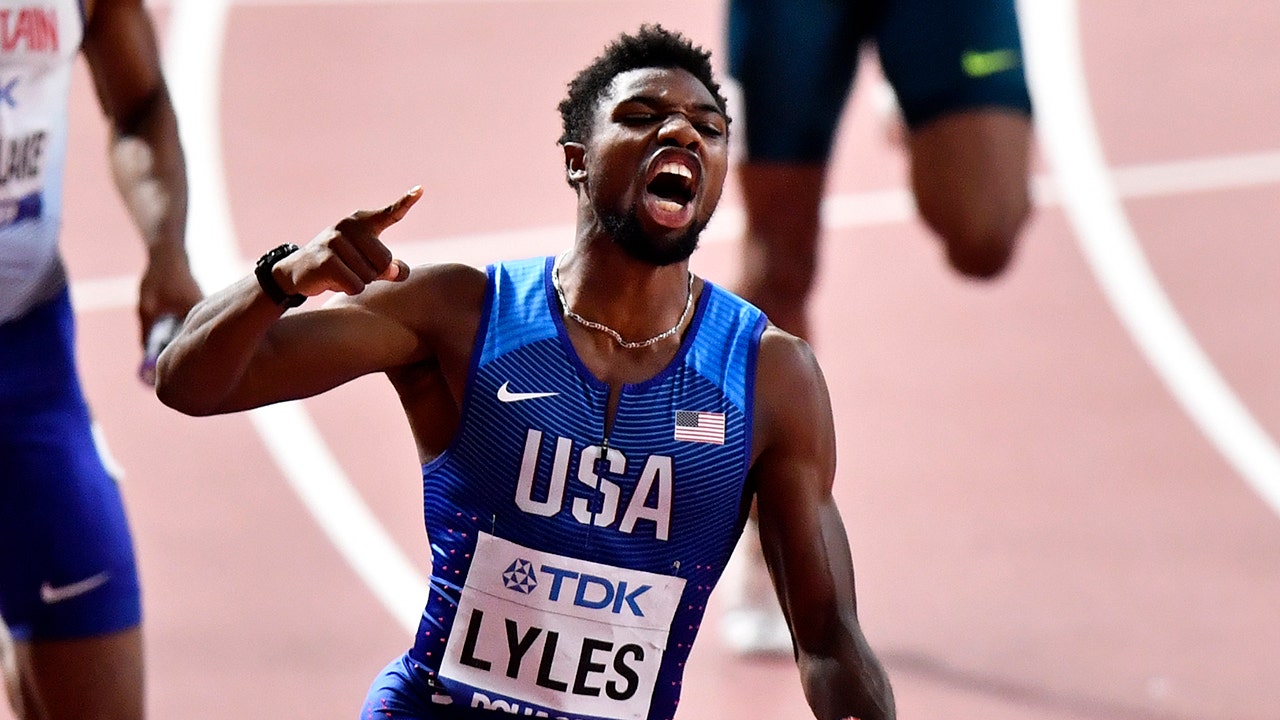Noah Lyles’ COVID-19 Status and Competition Eligibility: If Noah Lyles Had Covid Why Was He Allowed To Compete

The controversy surrounding Noah Lyles’ participation in the World Athletics Championships amidst concerns about his COVID-19 status has raised questions about the governing body’s guidelines and the athlete’s right to compete. While the details of Lyles’ specific situation remain unclear, the event provides an opportunity to examine the broader context of COVID-19 protocols in athletics.
World Athletics COVID-19 Guidelines
World Athletics has implemented a comprehensive set of guidelines to address the ongoing COVID-19 pandemic and its impact on athletes and competitions. These guidelines are designed to ensure the safety and well-being of all participants while minimizing disruption to the sport. The guidelines are regularly updated based on evolving scientific evidence and public health recommendations.
Specific Regulations for the Event
The specific regulations for the event in question, the World Athletics Championships, would have been Artikeld by the organizing committee and enforced by World Athletics officials. These regulations may have included requirements for testing, isolation protocols, and other measures designed to mitigate the risk of COVID-19 transmission.
Noah Lyles’ COVID-19 Test Results and Documentation
Information regarding Noah Lyles’ COVID-19 test results and any relevant documentation is not publicly available. However, it is important to note that athletes are generally required to undergo testing and meet specific criteria to be eligible to compete. These criteria may vary depending on the event and the local health regulations in place.
Public Health Concerns and Athlete Safety

The decision to allow Noah Lyles to compete while potentially COVID-positive raises significant concerns about public health and athlete safety. While the World Athletics guidelines allow for athletes to compete with a positive test if they meet certain criteria, the potential risks and ethical implications are worth examining.
Potential Risks of Allowing a COVID-Positive Athlete to Compete
The decision to allow a COVID-positive athlete to compete carries potential risks to both the athlete themselves and those around them.
- Increased Risk of Transmission: A COVID-positive athlete, even if asymptomatic, can still transmit the virus to others. This poses a risk to fellow athletes, coaches, staff, and spectators. The risk of transmission is heightened in a close-contact environment like a sporting event, where individuals are often in close proximity and breathing heavily.
- Potential for Severe Illness: While some individuals experience mild COVID-19 symptoms, others may develop severe illness, including pneumonia, respiratory failure, and even death. Allowing a COVID-positive athlete to compete could potentially increase their risk of developing serious complications.
- Long COVID: A significant proportion of individuals who contract COVID-19 experience long-term symptoms, known as Long COVID. These symptoms can include fatigue, brain fog, shortness of breath, and other debilitating conditions. Allowing a COVID-positive athlete to compete could potentially increase their risk of developing Long COVID.
Comparison of Risks to Other Athletes and Spectators
The potential risks of allowing a COVID-positive athlete to compete are not limited to the athlete themselves. Other athletes and spectators are also at risk of contracting the virus. The risk of transmission is particularly high in a sporting event, where individuals are often in close proximity and breathing heavily.
- Impact on Other Athletes: If a COVID-positive athlete competes, other athletes in the same competition are at risk of contracting the virus. This could lead to disruptions in training schedules, missed competitions, and potential health complications.
- Impact on Spectators: Spectators at sporting events are also at risk of contracting COVID-19 from a positive athlete. This is particularly true for spectators who are elderly, immunocompromised, or have underlying health conditions.
Ethical Considerations, If noah lyles had covid why was he allowed to compete
The decision to allow Noah Lyles to compete while potentially COVID-positive raises significant ethical considerations.
- Balancing Individual Rights and Public Health: The decision to allow a COVID-positive athlete to compete requires a careful balancing of individual rights and public health concerns. While athletes have the right to compete, this right must be weighed against the potential risks to others.
- Transparency and Disclosure: Transparency and disclosure are crucial in situations involving COVID-19. Athletes, organizers, and health officials should be transparent about the risks involved and the measures being taken to mitigate them. Spectators should be informed of the potential risks of attending events where COVID-positive athletes are competing.
- Protecting Vulnerable Populations: The decision to allow a COVID-positive athlete to compete should consider the potential impact on vulnerable populations, such as elderly individuals, immunocompromised individuals, and children. These groups are at increased risk of severe illness from COVID-19.
If noah lyles had covid why was he allowed to compete – The question of Noah Lyles’ participation in the competition while potentially having COVID-19 is a complex one, raising concerns about the safety of athletes and spectators. It’s a reminder that even in the face of adversity, life goes on, and we find solace in simple pleasures, like enjoying a beautiful day outdoors on a comfortable big sur chair walmart.
Ultimately, it’s essential to weigh the risks and benefits involved in such situations, ensuring the well-being of all parties involved.
The questions surrounding Noah Lyles’s participation in the World Athletics Championships while potentially having COVID-19 are a complex matter, mirroring the complexities of life itself. Just as a zero gravity hanging chair offers a moment of respite from the weight of the world, perhaps a deeper understanding of the athlete’s perspective and the regulations surrounding such situations can provide a similar sense of clarity.
The debate on whether Noah Lyles should have competed or not highlights the need for a more nuanced approach to health and performance in the face of uncertainty.